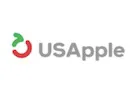Many U.S. apple businesses won’t qualify for critical COVID-relief assistance that was announced yesterday by the Agriculture Department, said the U.S. Apple Association.
The $700 million Pandemic Response and Safety (PRS) Grant program is intended to support businesses that incurred worker housing and transportation costs, as well as personal protective equipment, testing and other related expenses. But, says USApple, the program’s focus on small producers means many U.S. apple businesses won’t be eligible.
“We are pleased to see that the Pandemic Response and Safety Grant Program takes into consideration the types of expenses incurred by the apple industry,” said USApple president and CEO Jim Bair. “But we are concerned that as currently structured, it appears many growers will not qualify for this assistance.”
From the onset of the pandemic, apple growers, packers and processors have been on the front lines working to ensure the safety of their workers while continuing to deliver the fruit to consumers. This came at significant cost to apple businesses—from adhering to social distancing through retro-fitting packing and processing facilities, to securing additional transportation and housing. In addition, growers purchased personal protective equipment for their workers, secured tests and in some cases hired additional workers to step in for those in quarantine. Portions of the crop went unharvested due to COVID-related worker shortages.
“USApple has advocated for the past 18 months for federal assistance to offset these expenses, which averaged several hundred dollars per worker,” said Bair. “Congress recognized this need through targeted funding included in the December and March COVID-relief bills. We now stand ready to work with Congress and the administration to make improvements to the program with the goal of expanding access to more apple businesses.”
 For more information:
For more information:
Tracy Grondine
U.S. Apple Association
Tel: +1 (703) 442-8850
tgrondine@usapple.org
www.usapple.org
